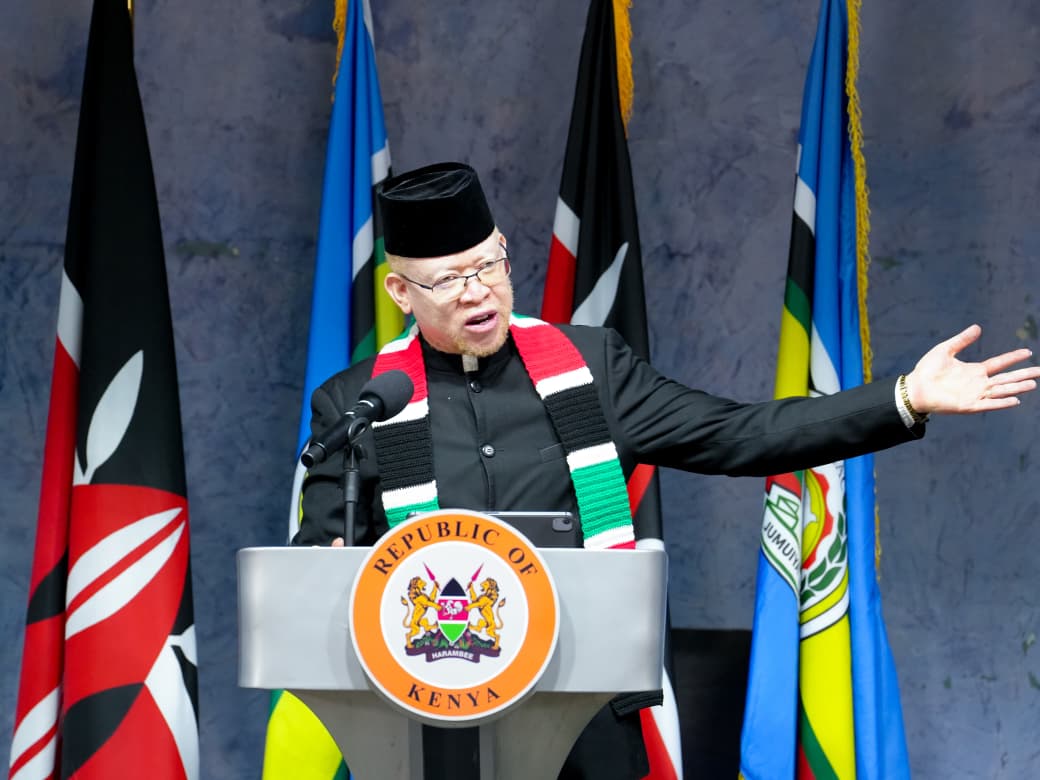
 Government Spokesman Isaac Mwaura speaking during a press conference on September 15, 2025 / HANDOUT
Government Spokesman Isaac Mwaura speaking during a press conference on September 15, 2025 / HANDOUTThe government has urged citizens to speak out against poor service delivery, corruption, and unresponsiveness in public offices, reaffirming its commitment to efficient and transparent governance.
Speaking in a statement issued as part of this year’s Public Service Week activities, Government Spokesperson Isaac Mwaura urged Kenyans to fully utilise existing accountability mechanisms, particularly the Commission on Administrative Justice (CAJ), commonly known as the Office of the Ombudsman.
Mwaura emphasised that every Kenyan has a constitutional right to be treated with dignity and equally whenever they interact with government institutions.
He noted that the government is determined to strengthen accountability within the public service by encouraging citizens to report cases of inefficiency and abuse of office.
"The government emphasises that every Kenyan has a right to be treated with dignity, courtesy and fairness in all government offices," he stated.
"Accordingly, citizens who encounter poor service delivery, corruption, or unresponsiveness are encouraged to report such cases to the Commission on Administrative Justice (Office of the Ombudsman)"
Mwaura added that the government’s focus on reforms in the public sector is meant to build professionalism, integrity, and citizen-centered service.
"This commitment underscores the government's ongoing reforms and ensures that public service remains responsive, people-driven, and guided by integrity and excellence," he said.
Mwaura stressed that while government reforms are ongoing, citizens must also play their part by actively reporting lapses. He noted that accountability cannot be achieved in isolation and requires partnership between the government and the public.
The Commission on Administrative Justice, established under Article 59(4) of the Constitution and the CAJ Act of 2011, serves as Kenya’s Ombudsman.
Its mandate is to address maladministration in the public sector and protect citizens from unfair treatment by state officers and agencies.
The Ombudsman provides an independent and impartial mechanism through which the public can lodge complaints regarding poor services, delayed responses, corruption, abuse of power, or violation of rights by public officers.
The Commission investigates such complaints, makes recommendations, and ensures corrective action is taken.
According to Mwaura, this mechanism is critical in bridging the gap between citizens and government institutions.
Beyond resolving individual complaints, the CAJ also conducts systemic reviews of public institutions to recommend reforms, enhance efficiency, and prevent recurrence of maladministration.
This contributes to broader governance reforms and strengthens the culture of accountability across the public service.
In his statement, he also highlighted the government’s NYOTA program, which targets more than 820,000 youth across Kenya’s 1,450 wards.
The initiative provides three empowerment pathways: on-the-job training, recognition of prior learning (RPL), and business startup support.
Each selected youth entrepreneur will receive Sh50,000 in startup capital, complemented by training and mentorship.















